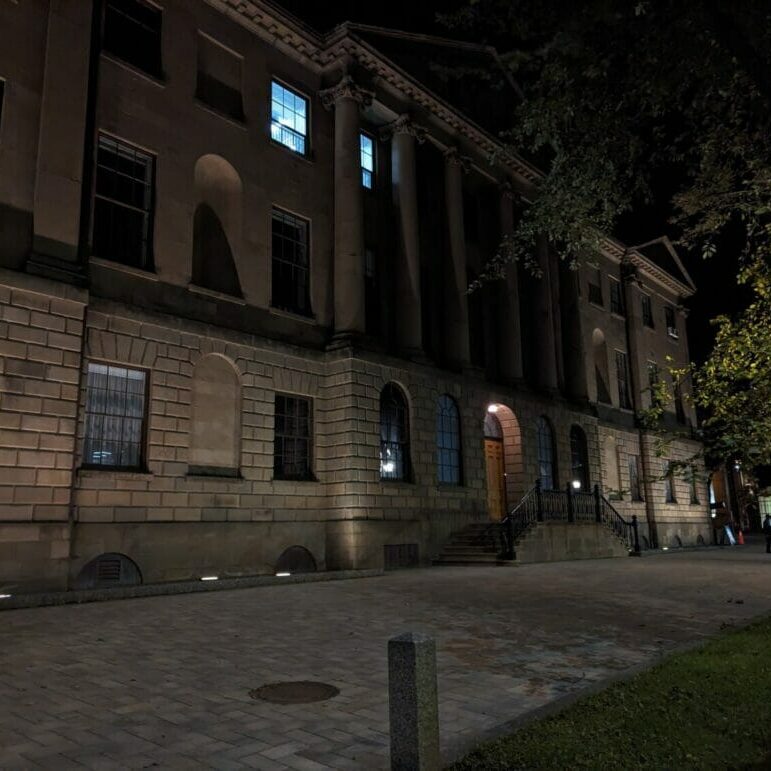
Cap international students, kneecap a country
Economic anxieties once again leave the mouths of our fearless leaders as xenophobic nonsense
The logic recently espoused by the Canadian government on the housing crisis may lead the unscrupulous to some inhuman conclusions. Ottawa seems to be suggesting that the housing crisis hasn’t been caused by predatory speculators, greedy landlords, consolidating real estate investment trusts, or supply issues. Rather, the housing crisis is being caused by immigrants.
So follows the logical path being explored by the federal government. Minister of Housing, Sean Fraser, announced the federal government is considering a cap on the number of international students allowed into the country. Even more concerning, it was hinted that this very same illogic will be hanging over a review of the nation’s broader immigration targets.
More recently, Nova Scotia’s advanced education minister, Brian Wong, posited another flawed view of international students and their relationship with housing. Wong said that the responsibility lies on students to have their living and working situations settled by the time they land in Canada.
”Once you find that educational institution that gives you what you want, you make sure there is also appropriate housing and any other things you may need,” said Wong.
International students were quick to respond that, despite due diligence, many barriers exist to finding housing prior to entrance into the province. However, the province is doing far too little to assuage the transitional woes of international students. Wong makes it sound easy, but this is a cruel twist on reality.
Canada and Nova Scotia are not earnestly concerned with providing international students avenues for education or permanent residency
Economic anxieties at the highest echelons of government have laid bare what some have known for some time; Canada and Nova Scotia are not earnestly concerned with providing international students avenues for education or permanent residency.
Our true motives prove much less benevolent if we cherry-pick ideal candidates who can come to Canada and never rely on government programming. A dearth of relocation aid for international students is but one method to discourage the immigration of non-affluent students.
Dalhousie also seems to do its part in screening for net worth. International student tuition increased by 7.5 per cent this year, compared to a still wholly unreasonable 3 per cent for Canadian students.
People who will not make the cut for this cap, I’d wager, are those without the resources necessary to guarantee room and board upon entry. Those with doubt-free housing and employment will probably be the first to make the list.
Another important note is that applications for employment opportunities at campuses aren’t always considered before the school year begins. There are also limits to how many hours an international student can work outside of class if they are allowed to work at all.
There are limits to how many hours an international student can work outside of class — if they are allowed to work at all
Immigration is plainly beneficial, even in purely cold economic terms. However, their contributions obviously don’t end there. A report published by the Nova Scotia Office of Immigration in 2020 noted that “increased immigration to the province supports economic growth, strengthens the provincial labour force and builds a stronger tax base to support provincial programs.”
The same logic holds true federally, as Canada’s workforce would be unable to sustain itself without immigrants, just as the Canadian economy and government coffers would shrivel without their financial contributions to the market and taxes.
For a more locally-oriented example, look no further than the fact that international students account for 30 per cent of Dalhousie’s enrollment.
Both levels of government’s recent rhetoric appear xenophobic and divisive, not just because it places blame on immigrant communities for issues emanating from within our own borders, but because it attempts to enforce an us-and-them dynamic.
Limiting immigration on the grounds of housing seems to imply that a living space, rightfully meant for a Canadian, could be stolen by a non-citizen, and that said non-citizen’s belonging here is a revokable privilege.
Limiting university town housing along national lines is just as nonsensical as if this were done interprovincially. If there was say, more housing available in Regina than Halifax, should Saskatchewanians be denied entry? There is nothing intrinsic that makes international students less deserving of a place at school.
Housing failures rest on our leadership, not on students or citizens of any country
This misguided suggestion obscures that our federal and provincial governments have been too slow and incapable of housing people living in Canada and supporting its economy. Whether they were born here or elsewhere.
It may be for the failures of the federal and provincial governments that we are all punished. Whether by exclusion from the very real economic growth created by immigrants or by exclusion from a place in “the cultural mosaic.”






